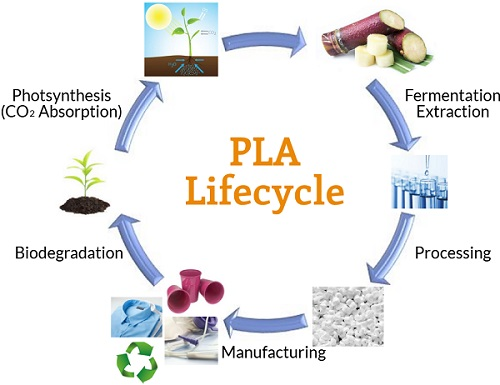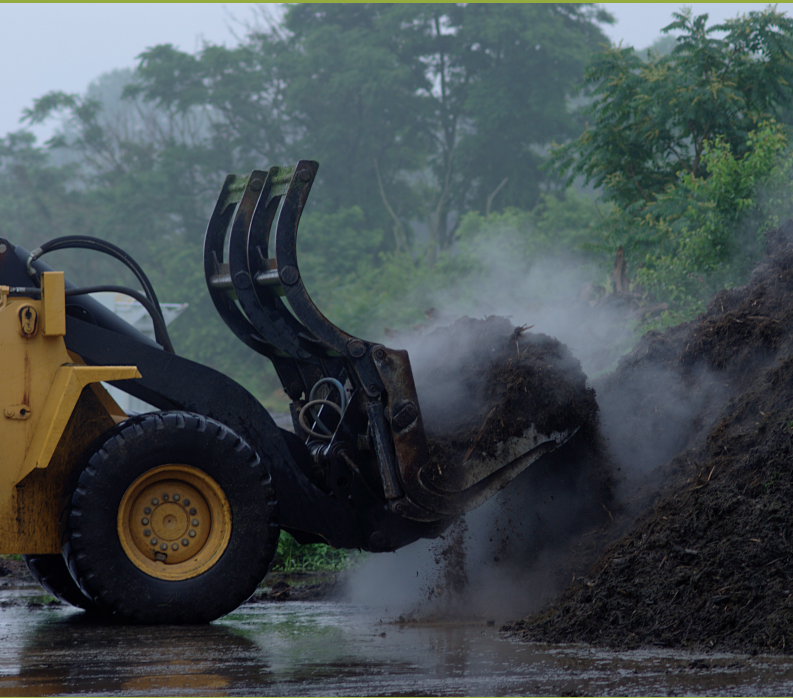Can Composting Revolutionize Our Approach to Plastic Waste?
Written on
Chapter 1: The Promise and Challenges of Biodegradable Plastics
Can composting truly be a game-changer for our environmental issues? The presence of biodegradable polymers is just part of the solution needed for a sustainable bioplastic economy.

In a recent article by John Schwartz in The New York Times, he highlights a crucial point about biodegradable containers. Just because a product is labeled biodegradable doesn't guarantee its environmental safety, as there's often more complexity involved with biodegradable plastics and paper products, including those fiber bowls you might encounter at restaurants like Chipotle.
One specific biodegradable polymer discussed is poly(lactic acid), or PLA, which has garnered attention for its applications in medical devices. If you've ever had dissolvable stitches, you’ve experienced the benefits of PLA technology firsthand.
Notably, thyssenkrupp has announced an increase in PLA production capacity in China, adding an impressive 30,000 tons annually. Their initial plant was designed to support COFCO, China's largest food and beverage corporation, and has proven successful. Other companies, such as Natureworks and Total Corbion, are also expanding their PLA production this year. Sounds promising, right?
Section 1.1: Understanding PLA and Its Limitations
So how does PLA function, and what are its shortcomings? When PLA degrades, it produces lactic acid, a compound naturally occurring in the human body post-exercise. However, PLA can easily be mistaken for other plastics, leading it to be improperly disposed of in recycling streams or landfills. If discarded in a landfill, PLA contributes to methane production and can take decades to decompose, much like conventional plastics.
As an experiment this fall, consider adding some PLA to your backyard compost pile and monitoring the degradation process.

The label may claim that PLA is compostable, but as Schwartz points out, this is only true under industrial composting conditions, which are not replicated in typical backyard setups. Following its mass production by Natureworks in 2002, there was hope for a shift towards compostable single-use plastics. However, the high cost of PLA compared to its alternatives led to limited adoption.
While global PLA production is on the rise, providing increased accessibility and reducing costs, the lack of a strong industrial composting infrastructure remains a significant hurdle for effective biodegradation.
Section 1.2: The Role of Industrial Composting
Composting is gaining traction in various regions of the U.S., particularly in the Northeast, where consumers can pay for the collection and processing of compostable materials, including food scraps, paper, and PLA. Local companies like Garbage to Garden and Black Earth Compost offer services that make composting convenient and efficient.

Industrial composting facilities can break down PLA, thanks to their ability to maintain higher temperatures (between 122–140 °F or 50–60 °C) and optimal humidity levels, along with specialized microbes. These conditions facilitate the rapid transformation of organic waste into nutrient-rich soil, with a typical composting cycle lasting three to six months.
The rise of composting programs may encourage the expansion of industrial composting infrastructure, leading to reduced costs and the potential for compost to replace traditional fertilizers. Moreover, composting initiatives can create significantly more jobs compared to waste incineration.
Chapter 2: The Transformative Power of Composting
The first video, "Compost Saves the World!" explores how composting can tackle environmental challenges and promote sustainability.
The second video, "Why Compost? The 10 Benefits of Composting for People and the Planet," outlines the numerous advantages of composting for both individuals and the environment.
Composting offers a pathway to create local economic resilience, produce high-quality soil as an alternative to fertilizers, sequester carbon, provide a means for biodegradable polymers to decompose, and empower individuals to contribute positively to our planet's future.
Navigating the challenges of 2020 has illuminated how easily one can feel powerless. Since we began composting this year, I have come to realize its critical importance for our planet's health.
If we desire more biodegradable plastics that minimize harm, we need increased composting efforts. If we aim to sequester carbon and enhance soil health, composting is essential. Furthermore, if we wish to stimulate local economies while benefiting the environment, we must embrace composting.
As our composting infrastructure matures, costs are likely to decrease, availability of biodegradable plastics will increase, and many of the issues surrounding plastic waste and landfills will improve.
In a future where we might send microbes capable of breaking down plastic to Mars, we could see a shift in how we approach waste management on Earth.
If you found this newsletter informative, consider subscribing and sharing. Should you have topics you’d like me to cover, feel free to leave a comment.
The Polymerist
Making sense about news from the chemical industry by a polymer chemist
anthonymaiorana.substack.com
All opinions expressed are solely my own and do not represent the views of any employers, nor should they be considered investment advice. I'm still exploring the direction of this newsletter, aiming for bi-weekly updates—Fridays for topical discussions and Tuesdays for deeper insights.